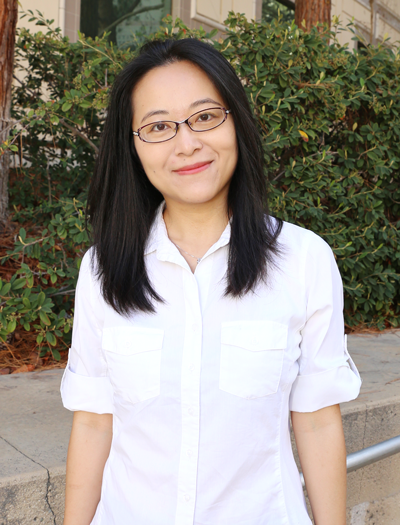UCI Biomedical Engineer Named NIH New Innovator

Oct. 4, 2022 - Fangyuan Ding, assistant professor of biomedical engineering, has received a 2022 Director’s New Innovator Award from the National Institutes of Health. She is among 72 to win the award this year, which supports unusually innovative, high-impact biomedical research from early career investigators.
Ding will receive $2.3 million over five years in support of her research in ribonucleic acid (RNA) biology, with potential applications for therapeutics that could help diagnose intractable chronic and rare diseases such as cancer, Alzheimer’s, atherosclerosis and Parkinson’s.
RNA is a molecule that plays a central role in turning genetic information into the body's proteins. It also carries the genetic instructions for many viruses and diseases. Despite progress in identifying and determining the disease-related functions of RNA molecules, the regulation of many important RNA types remains technically difficult to detect at the molecular level. Ding’s work will contribute to scientists’ understanding of RNA biology in two ways. First, she is developing a low-cost universally applicable RNA mapping tool with single-base resolution that will enable spatial mapping of all types of RNA molecules in individual cells. Second, with this advanced technology, she will be able to generate a comprehensive map of RNA regulation, including previously hard-to-detect types, a valuable asset for cell and developmental biologists.
“With this award, we hope to help open a new era of RNA biology, from basic science research to clinical applications,” said Ding. “We anticipate revealing the potential to modulate small RNA expression quantitatively and efficiently, to lay a foundation for therapeutic strategies in the future.”
Ding joined the UCI faculty in 2020. Her lab focuses on quantitative single molecule RNA biology and engineering, including basic single-cell research to tool developments for nucleic-acid based therapies. She is named on four patents licensed by Depixus, a Paris-based DNA research company. She has previously been recognized with an Intel Corp. research grant and a Schlumberger Faculty for the Future fellowship.
According to the NIH, the High-Risk, High-Reward Research program, supported by the Common Fund at the National Institutes of Health, supports investigators at each career stage who propose innovative research that, due to their inherent risk, may struggle in the traditional NIH peer-review process despite their transformative potential. Investigators seeking program support are encouraged to think beyond traditional bounds and to pursue trailblazing ideas in any area of research relevant to the NIH’s mission to advance knowledge and enhance health.
– Lori Brandt
